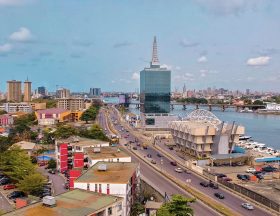With this $1.3 billion stimulus package, the Nigerian government hopes to stabilise the economy and mitigate the impact of reforms, while laying the foundations for sustainable growth in the country.
At the inauguration of the Presidential Economic Coordination Council in Abuja on Thursday 4 July, Nigerian President Bola Tinubu announced a N2 trillion (nearly USD 1.3 billion) recovery plan to stimulate the country’s economy.
The plan, which will run for the next 6 months, aims to improve food security, healthcare, social welfare, energy production and electricity supply.

The distribution of funds will focus on key sectors of the economy. Health and social welfare will receive a total of N350 billion, while an allocation of N500 billion will be made to agriculture and food security. The energy/electricity sector and the private sector will receive N500 billion and N650 billion respectively.
These initiatives are aimed not only at creating millions of jobs, but also at transforming the Nigerian economy, according to Wade Edun, the Minister of Finance. The new Presidential Economic Coordination Council, which includes businessmen Aliko Dangote and Tony Elumelu, will oversee their implementation.

This emergency plan comes at a time when Nigeria is going through a period of economic fragility, exacerbated by the reforms of the Tinubu administration. The Head of State abolished fuel subsidies and unified exchange rates to curb monetary arbitrage. These measures led to a significant fall in the value of the naira and made it even harder for Nigerians to cope with soaring food prices.
In April 2024, inflation reached its highest level for 28 years, standing at 33.69% year-on-year, compared with 33.20% in March, according to the National Bureau of Statistics (NBS). Meanwhile, the naira was trading at 1,440 to the US dollar, according to the Central Bank.
































Réagissez à cet article